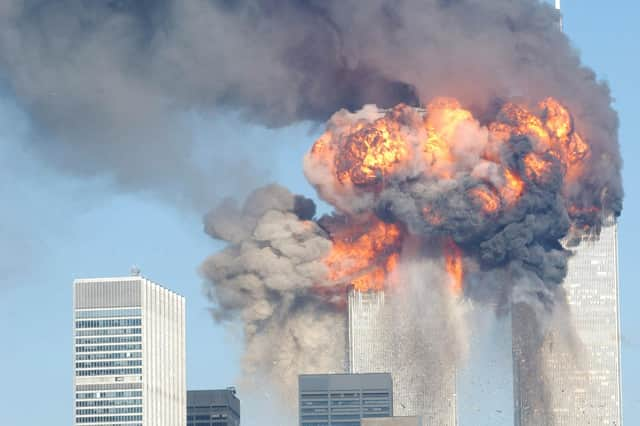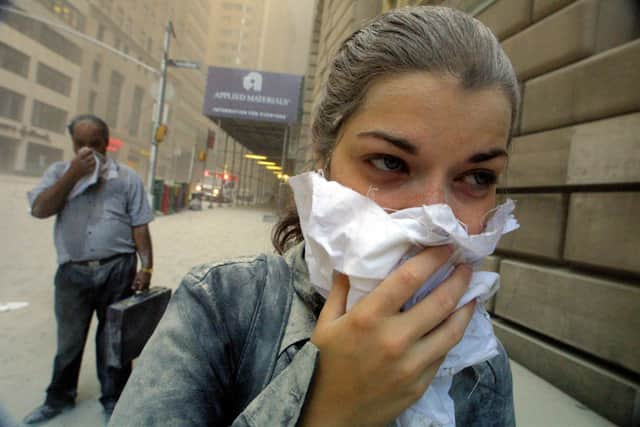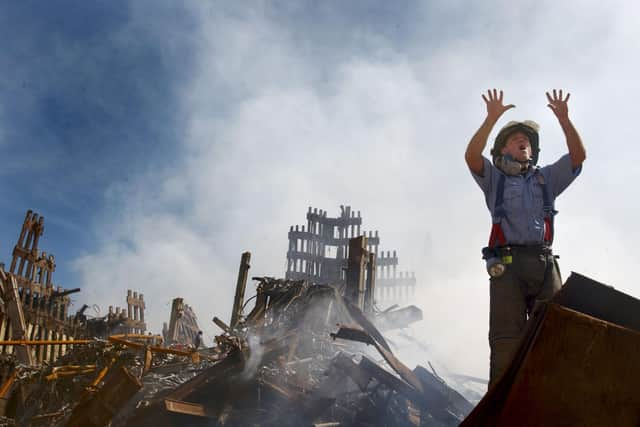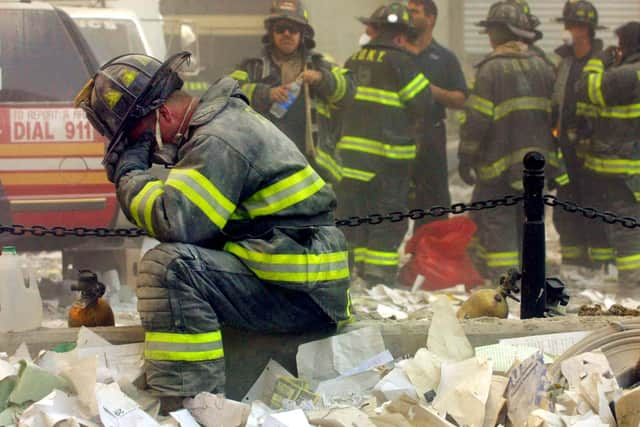September 11 terrorist attacks led to a rise in Islamophobia but an individual tragedy saw me become a 'brother' to a group of Muslims – Professor Joe Goldblatt


A few minutes later he returned and said: “An airplane just crashed into the World Trade Tower in New York.”
My dental chair was nearly 200 miles away from New York city. However, perhaps due to the population density of the north-eastern United States, both the dentist and myself felt as though we were also under attack. I quickly removed my dental bib and told the dentist that I needed to return to my university where I had recently been appointed Dean of a large business school.
Advertisement
Hide AdAdvertisement
Hide AdDuring the short journey, I rang the president of the university and asked what I should do upon my arrival at my office. His secretary responded that they too had just received the news and at this time there were no immediate plans.
I then telephoned my wife who was working at a local library and my sons, who lived in New York city and Washington, DC, to confirm that they were safe. My son in Washington was studying at a university that was less than five miles from where the third airplane had struck the US Pentagon.
When I walked into the university building, I saw my students rushing for the exits, some of whom were convulsed in tears. I quickly made the rounds of the classrooms and noticed that the lectures had been suspended and all students and staff were now staring in disbelief at televisions as they viewed in horror the second airplane striking Tower 2.
This week I viewed the excellent BBC documentary entitled 9/11: Inside the President’s War Room and, to my surprise, although it has been two decades since this nightmare became a reality, my stomach rapidly became nauseous as I along with many other viewers remembered exactly where we were and what we were doing on that fateful day.


This was the first time in the history of the United States that foreign terrorists had attacked American citizens inside our country. As President Bush later announced: “It was an act of war.” Indeed we all felt as though we were under attack.
In my case, I was responsible for the education and welfare of 1,000 post-graduate business students, including many from countries such as Korea, Iraq, Iran and Morocco.
I had previously arranged a welcome event for the students to bring them all together in the university gymnasium for entertainment and socialisation and this event was promptly cancelled.
However, a few weeks later I decided it should proceed as it would bring the students back together and allow me to reassure them that they were all most welcome in our university.


Advertisement
Hide AdAdvertisement
Hide AdShortly after the successful welcome event was conducted, one of my students became critically ill. He was from Morocco and had no local family so I visited his bedside on multiple occasions while he was in the intensive care unit and then regularly communicated his condition back to his parents.
One day his doctor rang my office to sadly announce that this student had suddenly died. I immediately returned to the hospital and stood by his bedside while silently reciting the Jewish prayer for mourners.
A few weeks later, a group of Muslim students asked to meet with me. I learned very soon after becoming a Dean that when one student requested a meeting it might be a minor problem, however, when a group of students wanted to see you it could spell big trouble.
Four male international students from Morocco entered my office and I noticed they were carrying a wrapped gift. I told them that I had been concerned for their welfare due to the xenophobia being experienced in the United States and that I would not tolerate any discrimination or Islamophobia in my university.


The spokesman for the group said: “We appreciate that Dean. In fact, we have come today to tell you that because of what you and Mrs Goldblatt did for our brother Mohammad, you are much more than our Dean. You are now our brother.”
Then they presented me with their gift. As I opened it, they explained that it represented a Moroccan tradition of remembering the dead by affixing their photo to a mirror so that when an individual looks into the mirror they see both their face and the face of their loved one, forever.
These students also had a small request. They wanted to know if I could find a place for them to pray each day and I was happy to designate a room for this purpose. Our handshakes then quickly turned into warm embraces.
As I remember this week the unforgettable events of 11 September 2001 and tell this story to the current generation, I wonder how we may remember the Covid-19 pandemic and how we shall tell this story, now and in the future, in order to help others.
Advertisement
Hide AdAdvertisement
Hide AdI strongly believe that in the case of 11 September, as admitted by President Bush, there was no indication of an imminent terrorism attack and therefore the US government was not prepared. Similarly, this is one of the grave lessons we have learned from Covid-19. Our lack of preparation has caused much chaos, confusion, illness and death.
Therefore, when the next catastrophe suddenly and forcefully disrupts our lives, we should remember that we too may soon be right back to where we started unless we learn from the past and use this certain knowledge to better prepare for an always uncertain future.
Joe Goldblatt is emeritus professor of planned events at Queen Margaret University in Edinburgh, Scotland. To read more about his views concerning world events visit www.joegoldblatt.scot
A message from the Editor:
Thank you for reading this article. We're more reliant on your support than ever as the shift in consumer habits brought about by coronavirus impacts our advertisers.
If you haven't already, please consider supporting our trusted, fact-checked journalism by taking out a digital subscription.
Comments
Want to join the conversation? Please or to comment on this article.